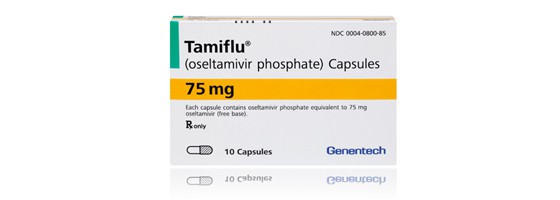
MPs in the UK have expressed their “extreme concern” about a lack of data on the efficacy of drugs as part of a report on the government’s decision to stockpile Roche’s influenza drug Tamiflu.
The Public Accounts Committee (PAC) has just published its final report on the investigation of the Department of Health’s decision to buy £424m-worth (around $700m) of Tamiflu (oseltamivir) for use in a potential flu pandemic.
The panel concludes that information is routinely withheld from doctors and researchers on clinical trials and – tellingly – suggests that “none of the latest proposals from regulators or industry adequately addresses the issue of access to the results of trials from previous years on the medicines in use today”.
The European Medicines Agency (EMA) is in the process of tightening up rules on access to clinical data as part of the update to the clinical trials directive – with a compromise text agreed last month – while pharma companies have also started adhering to a voluntary set of data-sharing principles laid out by trade associations in Europe and the US in 2013.
The PAC looked into the Tamiflu procurement after it emerged that £74m of the bought inventory was written off because of poor record-keeping. The probe was hampered, says the report, by a lack of consensus on how well Tamiflu works, something that was exacerbated by a lack of access to clinical trial data.
The withholding of data from trials is a “longstanding regulatory and cultural failure [that] impacts on all of medicine”, it concludes, pointing to research which suggests that only half of completed trials end up being published.
Tamiflu has been a flashpoint in the longstanding controversy about clinical data transparency, with health research body the Cochrane Collaboration asking for access to data from all 77 Roche-sponsored trials of the drug in 2009 after discrepancies between different regulatory bodies’ views on the drug raised questions about its effectiveness.
Roche eventually agreed to make the requested clinical study reports (CSRs) for the Tamiflu trials available – although edited and only to Cochrane – in a staggered manner from early 2013.
Earlier Cochrane analyses suggested that Tamiflu was largely ineffective in reducing flu complications, and the PAC now says the CSR data should be used to carry out a final review of the drug that can be used by the UK government and the Medicines and Healthcare products Regulatory Agency (MHRA) to review Tamiflu use. That review is said to be close to completion.
Peter Gøtzsche, leader of the Nordic Cochrane Centre and author of recently-published book Deadly Medicines and Organised Crime: How big pharma has corrupted healthcare, told PMLiVE: “This is the strongest parliamentary report about the misdeeds in the drug industry I have ever seen.”
While the findings should be a call to action and lead to major changes, “I am worried that the government’s response will be like another ‘Yes Minister’ episode,” he added, pointing to the “lies and denials” that followed the publication of the House of Commons report on the drug industry in 2004-2005.
The PAC’s conclusions were also welcomed by the AllTrials campaign – spearheaded by Bad Pharma author Dr Ben Goldacre – who said in a statement that the report “is a complete vindication of AllTrials’ call for all the results, of all the trials, on all the uses of all currently prescribed treatments”.
“None of the proposed new legislation or codes of conduct come anywhere close to this simple, vital ask,” added Goldacre, who claimed that – although industry has been promising greater transparency for over two decades – “obfuscating and delaying” has resulted in ever more results being withheld.
Industry’s take on the PAC report was somewhat different, with the Association of the British Pharmaceutical Industry (ABPI) saying it is “misleading” to suggest that the pharmaceutical industry routinely withholds clinical trial data from doctors and researchers.
The organisation’s research director Bina Rawal said that an ABPI-commissioned study last year suggested 89 per cent of all industry sponsored clinical trials had been disclosed by 31 January, 2013.
Meanwhile, Roche said it welcomed the report as it acknowledged that pandemic influenza is the number one risk in the UK government’s national risk registry, and confirmed it had made all 77 CSRs available to Cochrane.
“We stand by the integrity and robustness of the data that supports the efficacy and safety of Tamiflu,” Roche added.
The company also said it was committed to enabling access to anonymised individual patient level data for third party researchers, saying its data sharing policy goes beyond the EFPIA/PhRMA guidelines that have just come into force.




